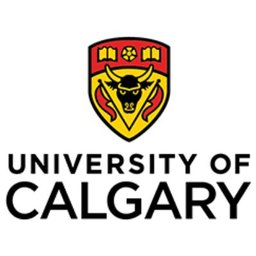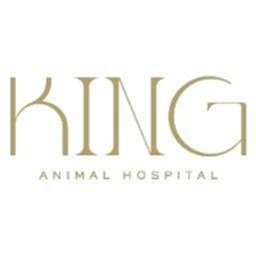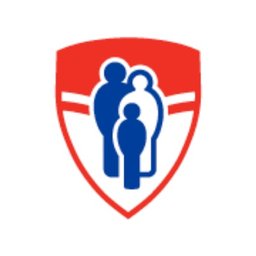About Queen's University
Queen’s University is the Canadian research intensive university with a transformative student learning experience. Here the employment experience is as diverse as it is interesting. We have opportunities in multiple areas of globally recognized research, faculty administration, engineering & construction, athletics & recreation, power generation, corporate shared services, and many more.
We are committed to employment equity and diversity in the workplace and welcome applications from individuals from equity seeking groups such as women, racialized/visible minorities, Indigenous/Aboriginal peoples, persons with a disability, persons who identify in the LGBTQ+ community and others who reflect the diversity of Canadian society.
Come work with us!
Job Summary
Reporting to the Associate Director, Animal Care Services the incumbent will work five days a week in the animal care quarters (noting the possibility of working some holidays and weekends). The incumbent will also report to Veterinary Services any animal health problems.
Graduates of an approved Veterinary Technician / Technologist or Animal Health Technician / Technologist program are encouraged to apply.
Job Description
Day to Day Responsibilities:
These skills are applied to the housing, maintenance and use of the following species: mouse, gerbil, guinea pig, birds (various), rats, primates, rabbits, cats, opossums, hamsters, pigs, frogs and other vertebrates and invertebrates.
To fulfill your duties what knowledge, skills and specialized techniques are required? How would each be normally acquired? How long would it take to become proficient in each of the areas of your work?
Ideally an incumbent should be a graduate of a full time community college with a three year program in Veterinary Technology. The minimum job requirement is a two year community college program in Animal Health Care or Science Technology with additional training on the job of one year. However, many years of on-the-job experience in the field has ensured the competency necessary for the position.
The duties, skills and specialized techniques required include the following:
As assigned by Veterinary Services and the Associate Director, Animal Care Services weekly scheduling all animals are checked regularly and any progression of disease is reported to the Veterinarians.
Is it necessary in this position to oversee the work, or to instruct other staff! If so, what does this involve?
What other people must you deal with in this job and why? (I.e. is there direct contact with students, teaching staff, other departments, and people outside the university community)
The incumbent deals with approximately three hundred principal investigators, academic staff, research assistants, students, and support staff, external to our department in the following capacities;
People dealt with from outside of the university include the following:
How is your work assigned to you, and how closely is your work checked by someone else?
Schedules are posted and provide a daily outline of work to be performed. For general daily work, the technician is responsible for meeting departmental standards and procedures. This work depends on self-initiative and is not closely supervised. The Associate Director, Animal Care Services may check to see if the work has been completed.
Are the sort of problems encountered in this job usually covered by established procedures or do you frequently have to develop or invent solutions to problems yourself?
Some problems are solved by established standard procedures, but the technician is frequently making decisions on priorities and exceptions to daily routine in consultation with the Associate Director, Animal Care Services or Veterinary Services. If major or unusual problems rise with the health status of animals Veterinarian Services and the Principal Investigators are contacted. Problems arising from mechanical failures, facility management or caging are reported to the Associate Director, Animal Care Services.
Are you involved in establishing standard procedures? (give examples)
The entire Animal Care staff has input in the development of Standard Operating Procedures. All animal care technicians have input into daily meetings which play a role in the development of standard procedures.
What is the size of your department (i.e. classes for which you are involved in labs, or of students and staff you might come in contact with, or of technicians in the department).
1 University Veterinarian
1 Clinical Veterinarian
1 Associate Director, Animal Care Services
1 Administrative Assistant
2 Veterinary Technicians
9 Animal Care Technicians
13 Animal Care Helpers
15 Casual Animal Care Technicians
Over 300 students, technicians, faculty and Principal Investigators
What kind of materials are you responsible for? Are you solely responsible for it, and what is its approximate value?
The technician has first line responsibility to report to Associate Director, Animal Care Services any faults, deficiencies or breakdowns in supplies with total estimated value of $6,000,000. The equipment used ranges from specialized animal caging to intricate cage washers, biosafety hoods, floor scrubbers, maintenance tools and various drugs used in the treatment of clinical conditions.
Give details of any unusual factors affecting this job? i.e. - hazards, unusual working conditions, requirements for a high degree of manual dexterity. etc.
All laboratory animal technicians may come in contact with:
o recombinant DNA material
o toxic compounds
o infectious microbiological agents
o electromagnetic radiations
o various drugs used in the treatment of animals
o dust and a multitude of other allergens
Do you have any general comments about this position which may not be covered in this questionnaire?
The technician must have a patient, humane and caring attitude towards all animals, combined with the strength and knowledge to handle them successfully.
Because of the ever-increasing scrutiny which animal use in research is receiving, it is essential that the technician have a balanced ethical attitude to the humane use of animals in research, teaching and testing. The technician must be cognizant of the function of the Canadian Council of Animal Care, the Canadian Association for Laboratory Animal Science, the Animals for Research Act and the University Animal Care Committee.
Employment Equity and Accessibility Statement
The University invites applications from all qualified individuals. Queen's is strongly committed to employment equity, diversity, and inclusion in the workplace and encourages applications from Black, racialized persons, Indigenous people, women, persons with disabilities, and 2SLGBTQI+ persons. In accordance with Canadian Immigration requirements, priority will be given to those who are legally eligible to work in Canada.
The University provides support in its recruitment processes to all applicants who require accommodation due to a protected ground under the Ontario Human Rights Code, including those with disabilities. Candidates requiring accommodation during the recruitment process are asked to contact Human Resources at [email protected].
- Attention To Detail
- Interpersonal Skills
- Time Management
- Working Independently




